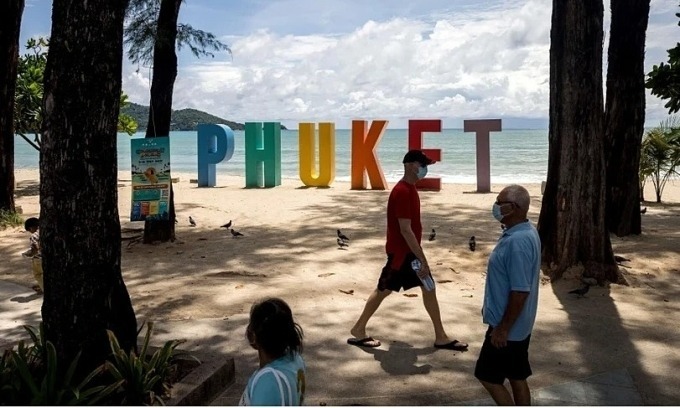The Hidden Dangers of Cheap Massages in Thailand
Tourists visiting Thailand are increasingly raising concerns about the safety and hygiene of cheap massage services, as reports of health issues continue to surface. These incidents have sparked a growing debate over the quality of such services and the potential risks they pose to visitors.
A U.S. doctor recently issued a strong warning to travelers after a disturbing case in which a tourist developed a severe skin infection following a low-cost Thai massage. According to reports, the incident involved a viral TikTok video showing a man’s legs covered in red, pus-filled bumps after receiving a $5 massage from an elderly woman in a back-alley location in Thailand.
The experience initially seemed harmless, but by the next morning, the man awoke to find his legs inflamed and covered with painful lesions. Dr. Joe Whittington, an emergency room physician, responded to the video, highlighting the dangers of such unregulated services. In his video, which has been viewed over 365,000 times, he remarked, “When the massage is $5 and the infection is free.”
According to Dr. Whittington, the man had developed folliculitis, an infection of the hair follicles that typically results in red, itchy, or pus-filled pimples on the skin. He explained that this condition occurs when bacteria and poor decisions combine. The infection was most likely caused by Staphylococcus aureus, commonly known as staph, a bacterium that spreads through direct skin contact or contaminated items such as towels or massage oils.
Dr. Whittington warned that poor sanitation in massage settings can quickly turn minor exposure into serious medical problems. This raises important questions about the standards of hygiene and safety in many of these establishments.
Traditional Thai massage, known as Nuad Thai, has deep cultural roots and was recognized by UNESCO as an intangible cultural heritage in 2019. However, despite its significance, only about 25% of the tens of thousands of massage establishments across Thailand are officially licensed. Illegal practices, particularly by foreigners, are widespread, especially in major cities like Bangkok. It is estimated that the capital alone has around 50,000 foreign workers operating illegally in the massage industry.
This lack of regulation has led to numerous cases of health concerns among tourists. One tragic incident involved a 43-year-old Australian man who was found dead at a massage parlor on Thailand’s Koh Samui island. According to reports, he was found on a bed inside one of the parlor’s private upstairs rooms after staff initially heard him snoring in his sleep following a massage session. Police confirmed the man had died on the premises.
The man had paid 400 baht ($12.28) for a one-hour traditional oil massage just after midnight. This case highlights the risks associated with unregulated massage services and the need for increased oversight and transparency in the industry.
As more tourists share their experiences and raise awareness about the potential dangers, there is a growing call for better regulation and higher hygiene standards in the massage sector. Travelers are being urged to be cautious and informed when choosing massage services, particularly those offered at extremely low prices. The importance of selecting licensed and reputable establishments cannot be overstated, as it plays a crucial role in ensuring the safety and well-being of all visitors.







